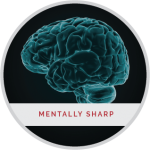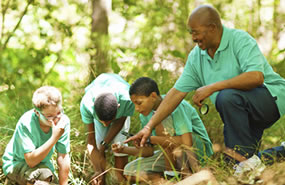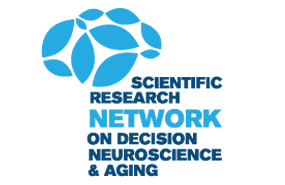 The mission of the Mind Division is to harness the human capital represented in a growing number of mature and talented older citizens. Absent significant disease, aging is associated with an increase in knowledge and expertise, emotional stability and heightened motivation to engage in meaningful work. At the same time, the speed and efficiency of new learning typically declines with age, as does sensory functioning affecting hearing and vision. Such changes can hamper the effectiveness with which people engage with work, families and communities.
The mission of the Mind Division is to harness the human capital represented in a growing number of mature and talented older citizens. Absent significant disease, aging is associated with an increase in knowledge and expertise, emotional stability and heightened motivation to engage in meaningful work. At the same time, the speed and efficiency of new learning typically declines with age, as does sensory functioning affecting hearing and vision. Such changes can hamper the effectiveness with which people engage with work, families and communities.
2014-15 PROJECTS
Study of the Benefits of Volunteering–Santa Clara County Project
 The Santa Clara County (SCC) Volunteerism Project is key to our mission and one of our premier studies. There is building excitement and optimism about the ability of this project to tap the human capital of SCC workers and retirees, and deploy it to help County residents, primarily youth. The impact of this project will be directed toward:
The Santa Clara County (SCC) Volunteerism Project is key to our mission and one of our premier studies. There is building excitement and optimism about the ability of this project to tap the human capital of SCC workers and retirees, and deploy it to help County residents, primarily youth. The impact of this project will be directed toward:
• Enhancing volunteer participation
• Understanding the benefits of volunteering (improve the physical, mental and cognitive health of volunteers)
• Enhancing community targets (benefits to the recipients of volunteerism)
• Reducing health care costs and utilization (and save the County health care expenditures)
• Becoming the first county in the U.S. to launch such an effort and serve as a model template to other cities, counties and throughout nation.
This year we have taken steps to obtain additional funding for the project, and secured funding from Santa Clara County to fund a Project Coordinator position (to begin in January 2016). In addition to our partnership with Santa Clara County, we have formed a partnership with First 5 Santa Clara, an organization that serves low-income children age 5 and under and their families. First 5 needs a large number of volunteers to serve as Universal Screeners (screening for vision, hearing, developmental and emotional delays in young children). The Center team hosted a Project Planning meeting in summer 2015 with key staff from Santa Clara County and from First 5 Santa Clara and outlined the Pilot Study that will begin in January 2016.
The Cognition and Retirement Study: “Is Working Longer Good for You?”–Understanding potential pathways between working and cognitive performance
 Funded by the Alfred P. Sloan Foundation, this research study was designed to identify potential mediators to age-related cognitive decline. Based on longitudinal analysis of the Health and Retirement Study data, the study examined the effects of retirement pathways on cognitive outcomes. The first project focused on the differential impact of cognitive changes at retirement for different retirement pathways (partial, full, and un-retirement) relative to staying employed full-time. The second project examined the relation between pre-retirement occupational characteristics and cognitive changes at retirement, examining those who fully retire relative to those who continue to work full-time.
Funded by the Alfred P. Sloan Foundation, this research study was designed to identify potential mediators to age-related cognitive decline. Based on longitudinal analysis of the Health and Retirement Study data, the study examined the effects of retirement pathways on cognitive outcomes. The first project focused on the differential impact of cognitive changes at retirement for different retirement pathways (partial, full, and un-retirement) relative to staying employed full-time. The second project examined the relation between pre-retirement occupational characteristics and cognitive changes at retirement, examining those who fully retire relative to those who continue to work full-time.
This research is designed to serve as a pilot project for an experimental study, which will be designed in tandem with the Santa Clara County study. The proposal for the experimental phase of the study is underway, and will focus on examining lifestyle behaviors of older workers before and just following retirement, and their relation to cognitive performance. Dawn Carr (Stanford Center on Longevity) with consultation from Robert Willis (University of Michigan) are investigators on this project. Two manuscripts are in preparation for submission and publication in peer review journals. The paper associated with the second project, which focuses on occupational characteristics, was presented at the “Cognitive Aging: Opportunities and Challenges” SIEPR Conference on Working Longer and Retirement, at Stanford University in fall 2015.
Family Decision-Making Surrounding Life-Threatening Illness
 The Center began a project in 2014 to support research on key unanswered questions about decision-making surrounding life-threatening illness. The aim of the project is to identify critical turning points and decision contexts that optimize the likelihood that individuals, families and loved ones can manage care in accordance with their goals. The launch conference for this project was held April 16-17, 2015, with discussion sessions that included:
The Center began a project in 2014 to support research on key unanswered questions about decision-making surrounding life-threatening illness. The aim of the project is to identify critical turning points and decision contexts that optimize the likelihood that individuals, families and loved ones can manage care in accordance with their goals. The launch conference for this project was held April 16-17, 2015, with discussion sessions that included:
• The Decision-Making Process in Families
• The Societal and Medical Context of Family Decision-Making
• Imagining the End of Life Under Ideal Conditions
• Setting the Research Agenda
The work of the group built on the recent Institute of Medicine Report titled, “Death in America,” that was released on June 17, 2014, based on a committee chaired by Professor Phil Pizzo, who also attended and spoke at the conference. The group developed numerous ideas for future research, improved policies, and practical applications and solutions. Laura Carstensen and Karen Cook have been asked by the Behavioral Science and Policy Association to serve as guest editors for a special edition of their journal, focused on this topic of family decision-making near end-of-life. Following the conference, we received a request for proposal from the Stupski Foundation (one of 10 RFPs throughout the country) and we submitted a proposal for three research projects: a measurement study to determine the best and most relevant questions to ask individuals who have dealt with end of life events; a national survey to learn from patients, their families, physicians and other health care providers, attorneys and financial advisors about their views, practices, and experiences on end of life; and a “Close the Gap Challenge” to fuel innovation in developing end of life solutions that meet individuals’ preferences.
Brain Health Consensus Paper
 The Center developed a consensus statement in collaboration with the Berlin Max Planck Institute for Human Development which was released on October 20, 2014, offering a consensus view about brain training products. The statement was signed by more than 70 of the world’s leading cognitive psychologists and neuroscientists. The statement received media attention including coverage in the New York Times, The Atlantic, Scientific American, and the Chronicle of Higher Education. Laura Carstensen appeared on Morning Joe to discuss the report. Read the full statement
The Center developed a consensus statement in collaboration with the Berlin Max Planck Institute for Human Development which was released on October 20, 2014, offering a consensus view about brain training products. The statement was signed by more than 70 of the world’s leading cognitive psychologists and neuroscientists. The statement received media attention including coverage in the New York Times, The Atlantic, Scientific American, and the Chronicle of Higher Education. Laura Carstensen appeared on Morning Joe to discuss the report. Read the full statement
Research Network on Decision Neuroscience and Aging
 The Center concluded its work with a National Institutes of Health (NIH) funded Network Grant on Decision Neuroscience and Aging in May 2015. The scientific leadership team included David Laibson (Harvard, Economics), Laura Carstensen, and Camelia Kuhnen (UNC, Finance.) Over the five year grant period six seed grants, ranging from $15,000 to $20,000 each, were awarded to junior researchers at six different institutions working in the field of decision neuroscience and aging. The recipient institutions were Temple University, UCLA, University of Florida, Yale University, Duke University, and Marquette University. In March 2015 the research network hosted a two-day conference on decision neuroscience and aging in Miami, FL. The conference featured talks and posters from experts in the field as well as our network-funded pilot grantees. A one-day workshop on computational modeling (focused on reinforcement learning) and applications to neuroimaging data followed the conference. The workshop featured lectures by Yael Niv and Nathaniel Daw and a hands-on sessions supported by teaching fellows. We received overwhelmingly positive feedback from many attendees about the success of the event.
The Center concluded its work with a National Institutes of Health (NIH) funded Network Grant on Decision Neuroscience and Aging in May 2015. The scientific leadership team included David Laibson (Harvard, Economics), Laura Carstensen, and Camelia Kuhnen (UNC, Finance.) Over the five year grant period six seed grants, ranging from $15,000 to $20,000 each, were awarded to junior researchers at six different institutions working in the field of decision neuroscience and aging. The recipient institutions were Temple University, UCLA, University of Florida, Yale University, Duke University, and Marquette University. In March 2015 the research network hosted a two-day conference on decision neuroscience and aging in Miami, FL. The conference featured talks and posters from experts in the field as well as our network-funded pilot grantees. A one-day workshop on computational modeling (focused on reinforcement learning) and applications to neuroimaging data followed the conference. The workshop featured lectures by Yael Niv and Nathaniel Daw and a hands-on sessions supported by teaching fellows. We received overwhelmingly positive feedback from many attendees about the success of the event.